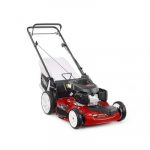Sometimes I ask myself why we chose to live so far north. Our summers are fleetingly short, and our winters dreadfully long. But there are benefits, too. We’re close to the gorgeous Teton Mountain Range, and all kinds of other recreation areas. Skiing, snowmobiling, hiking, camping, and sight seeing are all well within a short drive.
I mean, come on! This is practically my backyard:
That beauty comes with a price though, and that price is cold, cold winters. And winters that start while most of the rest of the U.S. is still enjoying the fall splendor. Right around the time school starts, it’s time for us to start winterizing our home, because the snow can fall as early as October around here. Here are some of our yearly must-dos to avoid problems like frozen pipes.
Tips for winterizing your home to prevent damage and save money
1. Clean the Gutters
After the leaves have finished fluttering to the ground, it’s time to get up on the ladder and clean out the gutters. Remove leaves and any other debris from your gutters. I find a gloved hand and a spatula from the kitchen are the best tools for the job. Finish up with a good hose rinse. Clean drains allow sleet, rain, and melting snow to drain freely. You don’t want an ice dam with backed up water, freezing and causing damage.
While you’re up there look for cracks, leaks, misaligned pipes, or any other problems that need repair. Finally, check that the downspouts are in good working condition, and are carrying water away from the foundation. The last thing you want to deal with in the dead of winter is a flooded basement!
2. Stop up Drafts
I don’t know about you, but my house is awfully drafty. To help keep the heat in, and reduce gas and electricity costs, we walk around the house and stop up those drafts. We replace seals around the doors (our dogs and kids do a number on them over the summer), and bust out our homemade draft blockers for the doors and windows (here’s a tutorial). Using a candle, my husband will walk around with the older boys and check windows for any holes in the caulking that can be patched.
Outside, seal leaks with weather-resistant caulk. For brick areas, use masonry sealer, which will better stand up to freezing and thawing.
3. Upgrade your Insulation
We were able to do this a few years ago, and though it was somewhat costly, it was worth it for what we saved on heating bills. My husband rented a machine from a hardware store, and bought more insulation to blow into the attic. Also, when we were finishing our basement, we insulated the ceiling, which allows us to heat the basement without losing much of the heat to the upstairs.
Not sure if you need extra insulation in the attic? Use this rule of thumb on whether you need to add insulation: If you go into the attic and you can see the ceiling joists you know you don’t have enough, because a ceiling joist is at most 10 or 11 inches.
While you’re at it, inspect any ductwork in the attic and basement, repair any leaks, cracks, and add insulation where needed. Homes with forced air systems can lose over half of the heat through faulty ductwork.
4. Check the Furnace
Turn it on, and make sure it’s working properly. It’ll smell dusty after long disuse through the summer months, this is normal. It shouldn’t last very long, just open the windows to clear it out if needed. If it lasts a long time, turn it off and call a repairman.
Change the filters, and think about scheduling some regular maintenance. Furnaces really ought to be cleaned at least once a year. It’s a good idea to have your vents cleaned out as well. This service can run anywhere from $100 – $200.
5. Storm Windows
If you have storm windows, fall is the time to take down the screens and get them up. That extra layer of glass helps keep cold out, and heat in.
We haven’t been able to afford special storm windows, so our screens stay up through the winter, and we keep our blinds and curtains closed on really cold days, and through the night. Our windows are double paned, but they can be very drafty in certain rooms.
A cheaper alternative would be to line your windows from the inside with thick plastic like many of our neighbors do.
6. Wrap your Pipes
As you probably know, water expands when it is frozen. Water trapped in pipes that freeze during the winter can expand and break the pipe. A burst pipe is a total nightmare. Prevent this problem by first flushing any outdoor pipes (we have a lawn service come to winterize our automatic sprinkler system). You want your lines thoroughly drained.
Check outdoor pipes and pipes in cold areas of your home such as the basement that aren’t insulated. Don’t forget the pipes that pass through unheated areas like the garage. Wrap them with purchased insulating sleeves or regular fiberglass insulation.
7. Chimneys, Fireplaces, and Wood Stoves
In order to help offset expensive heating bills, we utilize a wood stove in our basement. The stove and chimney pipe need to be swept and cleaned twice a year. Ash is mostly lye, and lye is acidic. It can corrode the metal damper, and even damage the mortar in the bricks of the chimney. Regular cleanings are crucial to prevent fire hazards and keep the stove in good working order.
We also installed a cap over the chimney pipe to prevent nesting creatures, debris, and other foreign objects from finding a home inside. It also prevents rain from entering and mixing with ash build up – which can hasten the lye’s ability to eat at the fireplace walls.
8. Storing your Tools and Machinery
Lawnmowers, garden tools, and things like the kids’ motorcycles and other summer toys must be stored away. Thankfully, we have an insulated garage and shop where we can store most of these things. Neighbors wrap campers in waterproof tarps, and ensure pipes are drained and winterized when these items must be stored outside. Some turn their hauling trailers upside down to prevent snow and ice build up in the cargo hold.
—
Though it takes some work and organization, winterizing your home is worth it. You’ll prevent more work and expense down the road by avoiding burst pipes and clogged drains, and save money on your heating bills.








